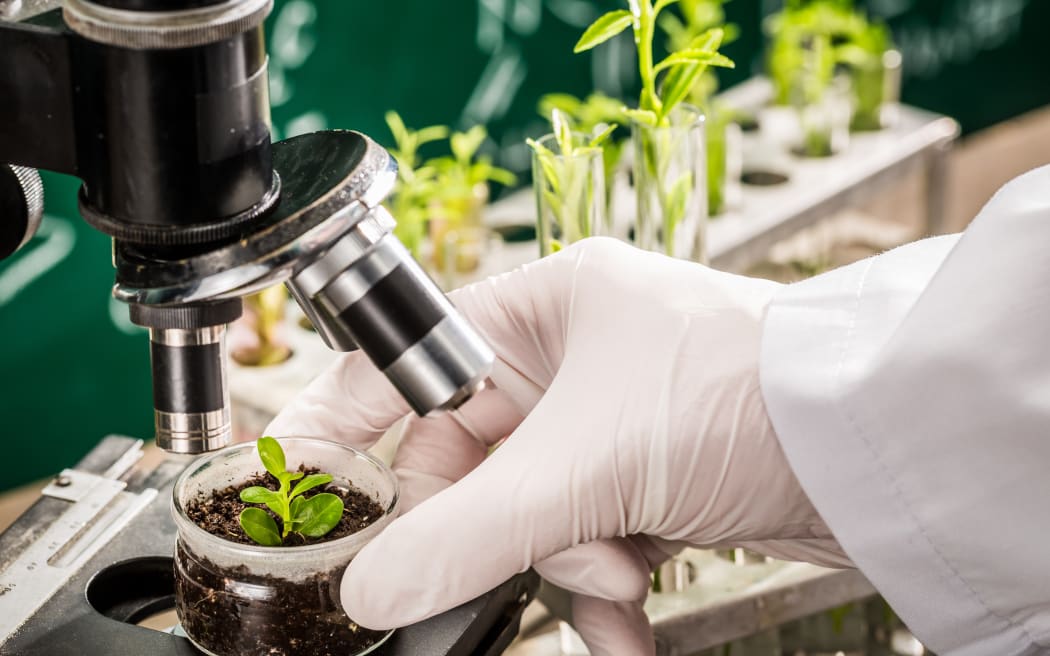
The National Party has proposed a plan which would end New Zealand's effective ban on gene-editing and modification. Photo: 123RF
An AgResearch scientist says horticulture and agriculture will benefit from the Environmental Protection Authority's re-classification of organisms known as null segregants.
Null segregants are descended from genetically-modified plant or animal organisms, but don't contain the genetic modification.
Despite this, industry regulation has treated them as if they were genetically modified, which has limited their use in research.
The Crown research institute and 14 other industry and research organisations wanted that changed - and the EPA decided in their favour on Thursday.
Null segregants are no longer subject to the Hazardous Substances and New Organisms Act 1996 which puts restrictions on the use of genetically modified organisms in New Zealand.
AgResearch head of science Richard Scott said it opened up new routes to using null segregants as a tool to accelerate selective breeding.
"A classic example that we're using at the moment is using genetic modification to shorten the time it takes for a plant to mature.
"Instead of taking 20 years to produce a a new variety with characteristics that are particularly desired, it can take four years and the very last step is to bred out the genetic modification, so the plants return to a normal breeding cycle."
He said rapid breeding was an example of how the new classification could be adopted by industry - but there would be many more opportunities.
"I think that's where it's going to open up those sort of possibilities and a lot of them probably haven't been thought about because the process of actually getting them out of the lab and that sort of thing hasn't been clearly defined.
"So now that people see a pathway forward for some of their ideas, then we're going to see, well hopefully, we'll see an explosion of of ideas of actually what can we use this technology for? What can we use this this clarification to achieve?"
Chris Hill, EPA's general manager of hazardous substances and new organisms, said it will vastly reduce the amount of time to bring new varieties to market.
"This decision provides certainty for researchers in our primary industries and brings New Zealand into line with other countries in the OECD, such as Australia and the United States. This will help New Zealand scientists keep pace with international research."
Scott said the move was separate to signals from National that it would end the effective ban on gene editing and genetic modification it announced last year.


